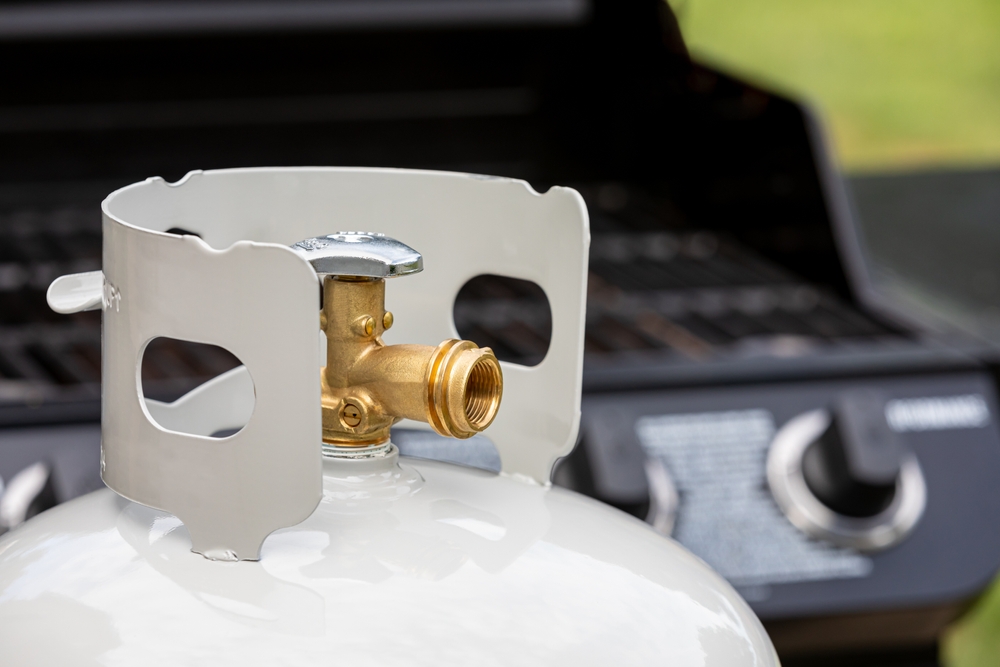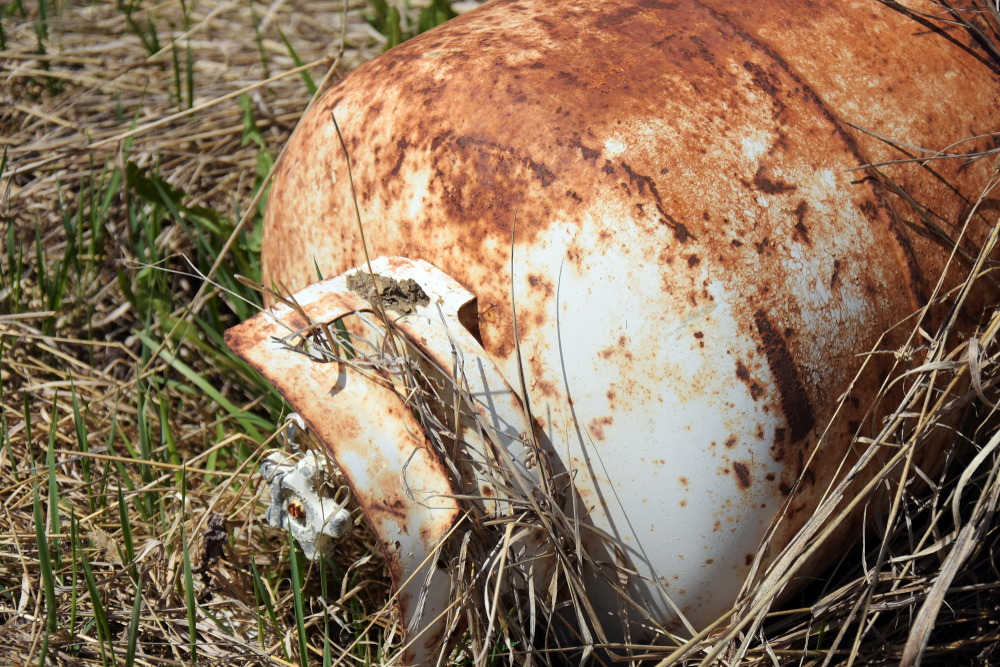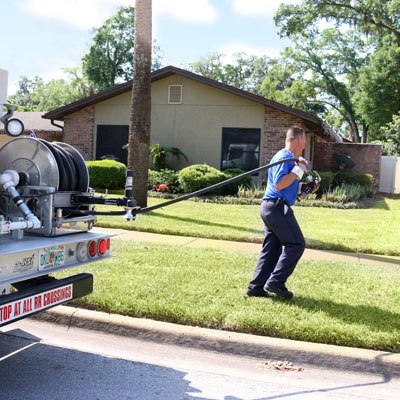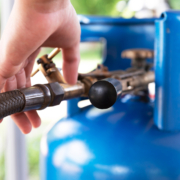Master Propane Safe Handling: Do’s and Don’ts
Propane is a versatile and efficient fuel commonly used in both residential and commercial settings for heating, cooking, and various industrial applications. While propane offers numerous benefits, including affordability and convenience, it’s essential to handle it safely to prevent accidents and ensure the well-being of individuals and property. In this guide, we’ll explore the importance of safe propane handling in both residential and commercial contexts, providing practical tips and do’s and don’ts tailored to each setting.
Understanding Propane
Propane, commonly referred to as liquefied petroleum gas (LPG), is a hydrocarbon gas that undergoes compression and is stored as a liquid in specialized propane tanks. It remains odorless and colorless in its natural form; however, to aid in the detection of leaks, an odorant known as ethyl mercaptan is meticulously added, imparting propane with its unmistakable and pungent “rotten egg” odor.
It is important to note that propane has a stellar reputation as a safe and reliable energy source, especially for residential use, is well-deserved and backed by stringent safety standards and regulations. When handled correctly, propane is one of the safest fuels for home heating, cooking, and hot water. It’s non-toxic, lead-free, and has a lower flammability range compared to other fuels, which means it doesn’t ignite as easily. Additionally, propane systems are equipped with numerous safety mechanisms, such as pressure relief valves and leak detectors, to ensure secure and efficient operation.
The Do’s and Don’ts of Propane Handling
Do’s:
- Do Familiarize Yourself with Propane Equipment: Prior to utilizing any propane-powered appliances or equipment, take ample time to meticulously peruse the manufacturer’s instructions and safety guidelines. Engage in a thorough understanding of the appropriate operation and maintenance protocols for propane tanks, regulators, valves, and appliances. Delve into the intricacies of each component, acquainting yourself with the nuances of their functionality to ensure seamless and safe operation.
- Do Perform Regular Inspections: Integrate a routine schedule of inspections for all propane-related components, encompassing tanks, hoses, fittings, and appliances. Conscientiously scrutinize each element to detect any indications of wear, damage, or potential leaks that may compromise safety. Pay particular attention to the minutest details, scanning for telltale signs of rust, corrosion, dents, cracks, or fraying on hose connections. Swiftly address any identified issues with proactive measures to rectify them, thereby preempting the escalation of safety hazards.
- Do Store Propane Tanks Properly: Exercise discernment in the storage of propane tanks, meticulously adhering to proper protocols to uphold safety standards. Erect propane tanks in an upright orientation within well-ventilated outdoor locales, meticulously chosen to circumvent the proximity of heat sources, ignition points, and combustible materials. Safeguard against the perils of gas accumulation by steadfastly refraining from indoor storage, reserving enclosed spaces such as basements or garages for items devoid of inherent fire risks.

- Do Handle Propane Cylinders with Care: Prioritize caution in the handling of propane cylinders, recognizing the intrinsic risks associated with their transportation and maneuvering. Execute meticulous measures to safeguard against potential accidents, ensuring the secure positioning of cylinders in an upright stance during transit. Exert deliberate efforts to avert the peril of dropping or mishandling cylinders, conscientiously adhering to proper lifting techniques designed to mitigate the risk of personal injury or property damage.
- Do Educate Others on Propane Safety: Cultivate a culture of awareness and responsibility by disseminating knowledge and best practices for propane handling to a broad spectrum of stakeholders. Foster open lines of communication within familial, professional, and social circles, facilitating the exchange of insights and concerns pertaining to propane safety. Empower family members, employees, and colleagues alike with a comprehensive understanding of propane safety measures, instilling in them the requisite skills and vigilance to navigate propane-related tasks with confidence and prudence.
Don’ts:
- Don’t Overfill Propane Tanks: Exercise prudence and caution in the handling of propane tanks by abstaining from the practice of overfilling. Acknowledge the inherent dangers associated with excessive pressure buildup within tanks, which may culminate in leaks or catastrophic tank ruptures. Adhere scrupulously to prescribed filling procedures, conscientiously refraining from attempting to surpass the designated maximum capacity of tanks. By adhering to established guidelines, you ensure the preservation of tank integrity and mitigate the potential hazards posed by overfilled tanks.

- Don’t Use Damaged Equipment: Uphold stringent safety standards by refraining from operating any propane equipment exhibiting evident signs of damage, deterioration, or malfunction. Recognize that utilizing compromised equipment amplifies the risk of hazardous outcomes, including leaks, fires, or explosions, jeopardizing both lives and property. Prioritize the preservation of safety by promptly addressing any indications of equipment impairment through diligent inspection and swift remedial action, thereby mitigating potential risks and safeguarding against catastrophic incidents.
- Don’t Ignore Signs of Gas Leaks: Cultivate a proactive approach to safety by remaining vigilant and responsive to indicators of potential gas leaks within propane systems. Should you perceive the distinctive odor of propane or discern hissing sounds emanating from propane equipment, prioritize immediate evacuation from the affected area and expedite contact with emergency services. Appreciate the gravity of disregarding telltale signs of gas leaks, which may precipitate catastrophic accidents and imperil life and property. Swift and decisive action is paramount in averting potential hazards and preserving safety.
- Don’t Store Propane Indoors: Safeguard against the perils of gas accumulation and ignition by steadfastly adhering to guidelines prohibiting the indoor storage of propane tanks. Recognize the inherent risks associated with confined spaces, which may precipitate gas buildup and potentiate the likelihood of ignition sources. Embrace a proactive stance towards safety by consistently storing propane tanks in designated outdoor locales, characterized by ample ventilation and a conspicuous absence of ignition hazards. By conscientiously adhering to prescribed storage protocols, you fortify safety measures and mitigate the potential risks posed by indoor propane storage.
- Don’t Attempt DIY Repairs: Exercise discretion and discernment in matters pertaining to propane equipment maintenance and repair, eschewing the temptation to embark on DIY repair endeavors. Acknowledge the inherent complexities and safety considerations inherent to propane systems, necessitating the expertise and proficiency of qualified technicians. Refrain resolutely from attempting DIY repairs or modifications, recognizing that such actions pose inherent risks to personal safety and equipment integrity. Prioritize safety and compliance by availing yourself of professional assistance from certified technicians for all propane-related repair, installation, and maintenance tasks, thereby ensuring optimal system performance and mitigating potential hazards.
Differences in Residential and Commercial Safety Measures
Residential Safety Measures:
- Installation: Residential propane systems, characterized by their smaller scale and simplicity, contrast with the complexity of commercial systems. Thus, meticulous installation by a certified professional becomes paramount, guaranteeing adherence to safety standards and local regulatory requirements while mitigating potential risks.

- Usage: Within residential environments, propane finds diverse applications, ranging from heating and cooking to water heating and outdoor grilling. It is incumbent upon homeowners to educate household members about propane safety measures, imparting knowledge on gas leak detection, emergency response procedures, and preventive measures, thereby fostering a secure living environment.
Commercial Safety Measures:
- Compliance: Commercial propane systems are subjected to rigorous regulatory oversight and stringent codes, surpassing the standards imposed on residential systems. Consistent adherence to these regulations and industry-specific standards through regular inspections and compliance assessments is imperative. Such measures are essential to safeguard the well-being of employees, customers, and property, ensuring that commercial establishments maintain a secure environment conducive to business operations.
- Ventilation: Given the scale of commercial buildings and the heightened propane usage within these settings, adequate ventilation becomes paramount. Proper ventilation systems are indispensable to mitigate the risk of gas buildup, thereby diminishing the potential hazards of asphyxiation or combustion. Implementing effective ventilation strategies not only enhances safety but also fosters optimal indoor air quality within commercial premises.
- Training: Employees tasked with handling propane in commercial settings should undergo comprehensive training programs dedicated to propane safety. These initiatives encompass a broad spectrum of topics, including proper handling procedures, emergency response protocols, and routine equipment maintenance. Equipping employees with the necessary knowledge and skills empowers them to navigate propane-related tasks safely and efficiently, thereby minimizing risks and promoting a culture of safety in the workplace.
Safe propane handling is paramount in both residential and commercial settings to prevent accidents and protect lives and property. By following the do’s and don’ts outlined in this guide and understanding the differences in safety measures between residential and commercial settings, individuals and businesses can ensure the safe and responsible use of propane. Remember to prioritize regular inspections, proper installation, and ongoing safety education to maintain a secure propane environment for all.
In conclusion, while propane is a safe and efficient fuel for residential use, we understand that you may have questions or concerns about your specific propane setup. At Thermotane, we are dedicated to ensuring your peace of mind and safety. If you’re unsure about any aspect of your propane system or would like a professional safety inspection, please don’t hesitate to reach out to us. Our team of experienced and knowledgeable professionals is here to provide you with comprehensive safety checks and advice. Your safety is our top priority, and we’re committed to helping you enjoy the benefits of propane with the utmost confidence. Contact us today to schedule your safety inspection or to get answers to any propane-related questions you may have. Remember, at Thermotane, your safety and satisfaction are our primary concerns.


